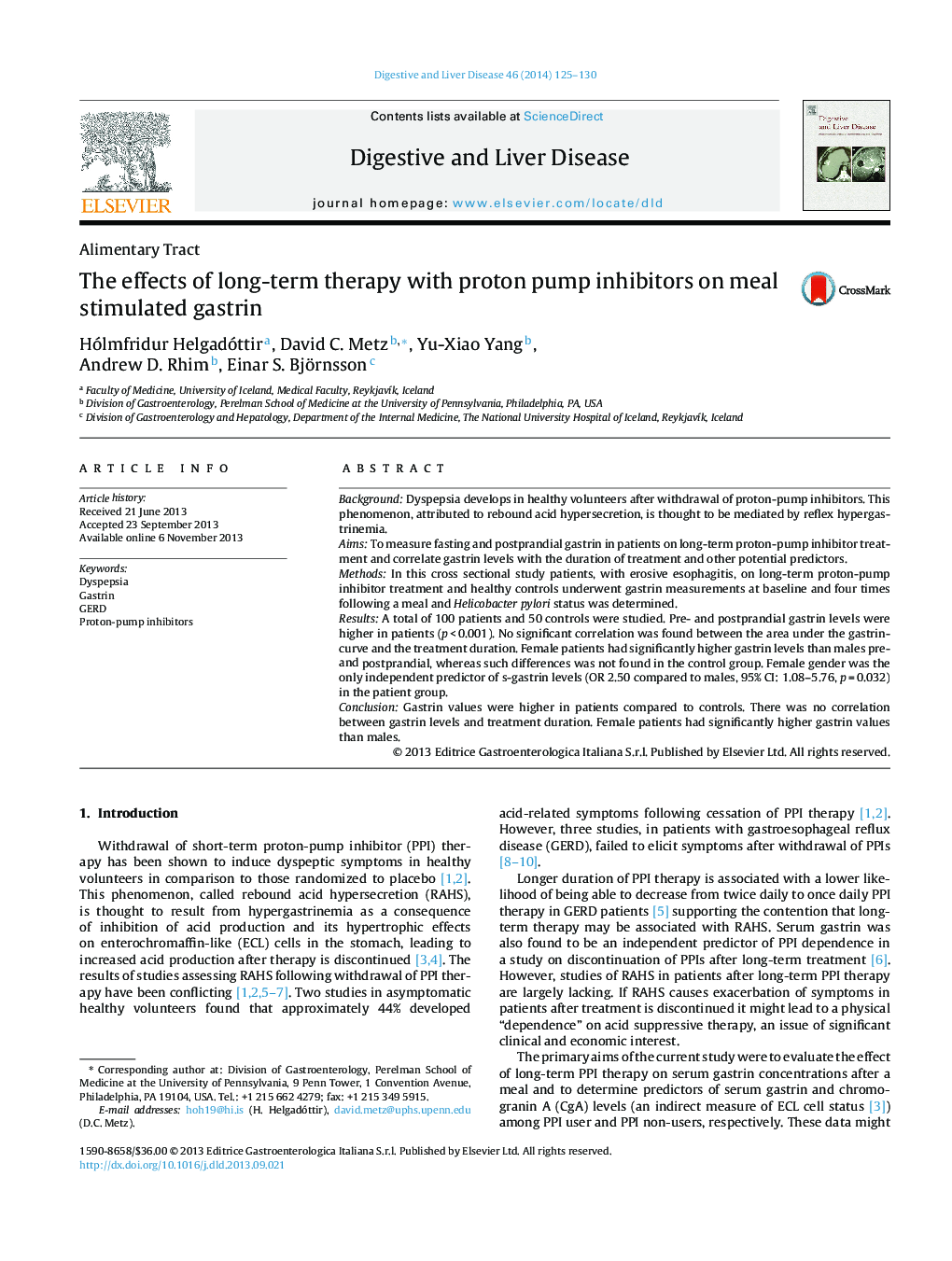| Article ID | Journal | Published Year | Pages | File Type |
|---|---|---|---|---|
| 6088789 | Digestive and Liver Disease | 2014 | 6 Pages |
BackgroundDyspepsia develops in healthy volunteers after withdrawal of proton-pump inhibitors. This phenomenon, attributed to rebound acid hypersecretion, is thought to be mediated by reflex hypergastrinemia.AimsTo measure fasting and postprandial gastrin in patients on long-term proton-pump inhibitor treatment and correlate gastrin levels with the duration of treatment and other potential predictors.MethodsIn this cross sectional study patients, with erosive esophagitis, on long-term proton-pump inhibitor treatment and healthy controls underwent gastrin measurements at baseline and four times following a meal and Helicobacter pylori status was determined.ResultsA total of 100 patients and 50 controls were studied. Pre- and postprandial gastrin levels were higher in patients (p < 0.001). No significant correlation was found between the area under the gastrin-curve and the treatment duration. Female patients had significantly higher gastrin levels than males pre- and postprandial, whereas such differences was not found in the control group. Female gender was the only independent predictor of s-gastrin levels (OR 2.50 compared to males, 95% CI: 1.08-5.76, p = 0.032) in the patient group.ConclusionGastrin values were higher in patients compared to controls. There was no correlation between gastrin levels and treatment duration. Female patients had significantly higher gastrin values than males.
